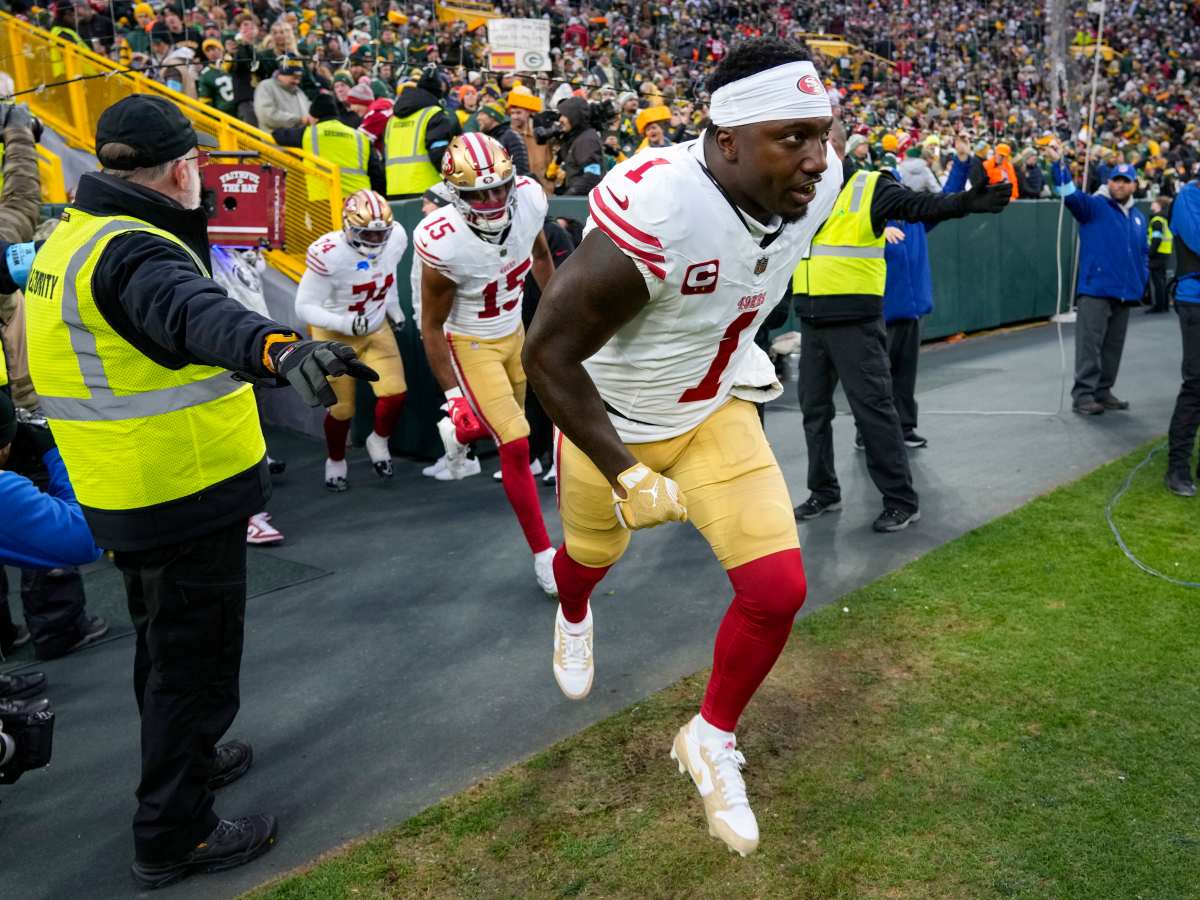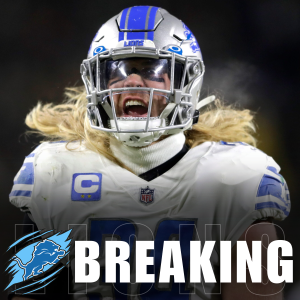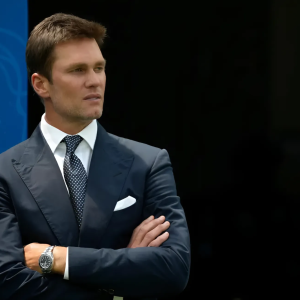Deebo Samuel requested a trade, and the San Francisco 49ers are willing to go that route. However, it’s hard to think it could make sense for the Green Bay Packers. After all, Samuel is not exactly the type of player the Packers need, and he’s shown over the last couple of years he is a super role player—but not a true WR1.
In 2024, he had a prime chance to be the top target for Brock Purdy after Brandon Aiyuk went down with a knee injury, but that simply did not happen—he finished third in receiving yards, after tight end George Kittle and wide receiver Jauan Jennings.
Yes, Deebo is a great offensive weapon. And yes, his ability to receive and run would be valuable to any NFL team. But he is more of a complementary piece than someone Matt LaFleur could build the offense around. Considering Deebo’s age and contract, that would only make sense for the Packers if he was that top piece.

“From my perspective, at this point in his career I don’t see Samuel as a WR1,” says Nicholas McGee, who covers the San Francisco 49ers for A to Z Sports. “He came in for a lot of criticism after the Super Bowl last season for an inability to separate and he did nothing in 2024 to assuage those critiques. Samuel doesn’t have the route-running prowess to consistently beat coverage and, with his skill set as both a receiver and a runner seemingly on the decline, it’s difficult to see him ever recapturing the form of 2021, when he could last truly be considered a WR1. Heading into his seventh season, he’s more of a secondary piece who needs to be schemed into open space. Any team thinking about adding him needs to take that, and his injury history, into account.”
The main attribute the Packers receiving group lacked in 2024 was the ability to create separation. If Samuel can’t do that, he adds low value to the core.
Production
Samuel had that historic season in 2021, with 1,405 receiving yards and 365 rushing yards, with 14 total touchdowns. But every year, that seems more like an outlier.
This past season, Samuel had 670 receiving yards and 136 rushing yards. Both numbers are lower than the ones Jayden Reed had—857 receiving and 163 rushing yards. Why would the Packers want an older and more expensive version of what they already have?

“When you trade a high pick for a veteran player, you’re trading a young, really good contract for a player who’s proven, but probably expensive, so you’re giving up a pick and salary cap space,” Packers general manager Brian Gutekunst said after the season. “You gotta weigh that. If it’s the right player, if you can feel he can be a dynamic player that can change your football team, you gotta consider that, because there’s not many of those guys out there. But you also have to understand what you’re giving up.”
The Packers’ concept is clear. Gutekunst would probably be open to trade for an elite player, maybe even a receiver like Brandon Aiyuk, but Deebo is not the target that would fit into that logic.
Cost
Deebo Samuel is slated to make $17.55 million this season, the last of this contract, but most of it ($15.43 million) is in the form of a roster bonus. The idea behind it is that the acquiring team would convert the amount into a signing bonus, making his cap hit go to as low as $5.2 million—and the remaining $12.35 million would hit as dead money in 2026.
The 49ers could be open to absorb some of that salary to get a higher pick, but probably not much because it’s not guaranteed.
The Packers or any acquiring team would have the option to buy Samuel with the current salary for a low pick, certainly on Day 3, and maybe a mid-round pick for a lower salary. In any case, it’s hard to justify the move for Green Bay.





